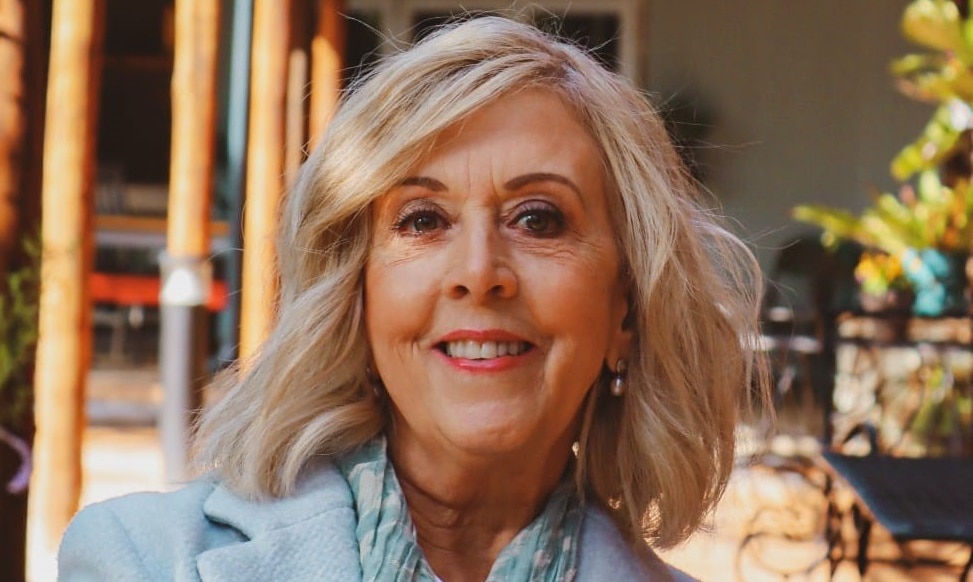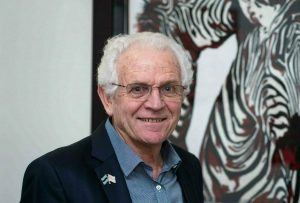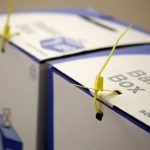The actress Sally Campher has been charming South African audiences for years as the naive, silly Yolanda “Yollie” van Tonder in the popular TV series from the eighties Orkney Snoring Not.
With her famous saying, “Poeksie-Woeksie-se-Worsie-Wapsie”, she has crawled into the hearts of different generations of South Africans over the years with the series’ repeated rebroadcasts.
Sally tells in a video interview with RNews that it was always great fun on set Orkney Snoring Notand that it is a compliment to her that people still remember her as Yollie.
“People liked Orkney, and it was their escape. I’m glad I could be a part of it and make people laugh. It was incredibly fun (on the set) and initially we didn’t know each other personally, but we very soon formed a very close bond.”
She says the Orkneyreunion that took place last year at the AfriForum Theater in Pretoria, not only left the audience with goosebumps, but also the team behind the popular TV series.
“To think that you made such a positive impression on your audience was a shocking achievement for us. It was wonderful for us, but also sad – a laugh with a tear,” she says.
Since then, Sally has worn several hats in the entertainment industry, even serving as fashion and beauty editor DECAT and fashion editor at red roses.

The director of Orkney Snoring Not, Pieter Esterhuizen, caught Sally’s eye at the time and today, 34 years later, they are still happily married. Pieter and his brother, the actor Willie Esterhuizen, own a production company, Westel Productions, which makes films and TV series.
Pieter and Sally are also the parents of a son, Jano, and daughter, Sanchia, and grandparents of Jano’s boy.
Jano is the co-owner of a company that does small-scale building projects, maintenance and renovation work in Gauteng and KwaZulu-Natal, and Shanchia is a primary school teacher in Johannesburg.
Being a grandmother is an incredible privilege for Sally. “To think that you are being spared to meet your children’s old cubs is wonderful. A child is innocent and I don’t have to educate the child. I can just spoil and play and do all the fun stuff. I’m in seventh heaven.”
She says she and Pieter are lucky enough that their children love spending time with them and do everything together as a family.
“We breathe together!” she said laughing.
Safety app for mobile phones

In 2019, Sally and her family became part of South Africa’s crime statistics when Pieter was attacked and tied up in their home in Johannesburg.
“Pieter was badly destroyed and we suffered a lot of damage, but we were very blessed that they did not kill my husband,” says Sally.
She and her daughter were traveling abroad when they received the terrifying call that there had been a burglary.
“My son called and said my husband looked very bad. It was terribly traumatic. Sanchia and I were only four days into our trip, but we immediately booked flights back to South Africa.”
It was this incident that prompted Sally and Sanchia to research and develop the WeHelp mobile app with the help of Mark Markgraaff.
WeHelp is a simple smartphone app that focuses on crime and medical emergencies. It is accessible, easy and affordable for all South Africans. It is also available in the Netherlands and Australia.
Once the app is downloaded, the user can start creating groups and uploading emergency numbers of family members, friends, community members and even neighborhood watches. Users have the opportunity to load their own security network which can also include security companies or reservists in their area.
It is important that everyone on the user’s safety network has also downloaded the application. If there is an emergency situation, whether crime or medical, the emergency button on the home screen of the user’s phone or tablet can be activated without opening the application.
One message goes to all the loaded contacts on the user’s safety network. The user’s current location (live location) with directions is also immediately available.
During a medical emergency, the user’s medical information such as blood type and any allergies that were previously listed when the profile was created, also becomes visible to the person (in the safety network) who responds.
Groups, such as for example “neighbourhood”, “work” or “travel” can be switched on and off at any time as the user needs them.
WeHelp is available on Android and Apple devices.
- Watch the full video interview with Sally Campher here.








